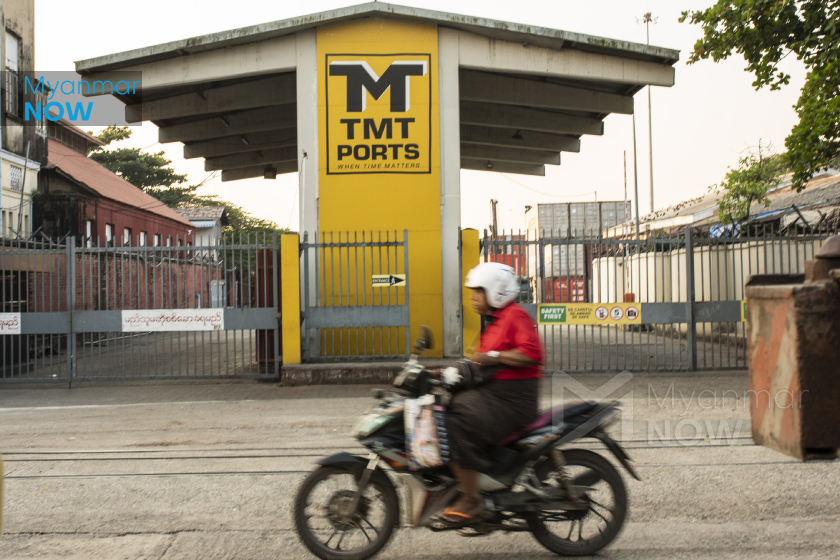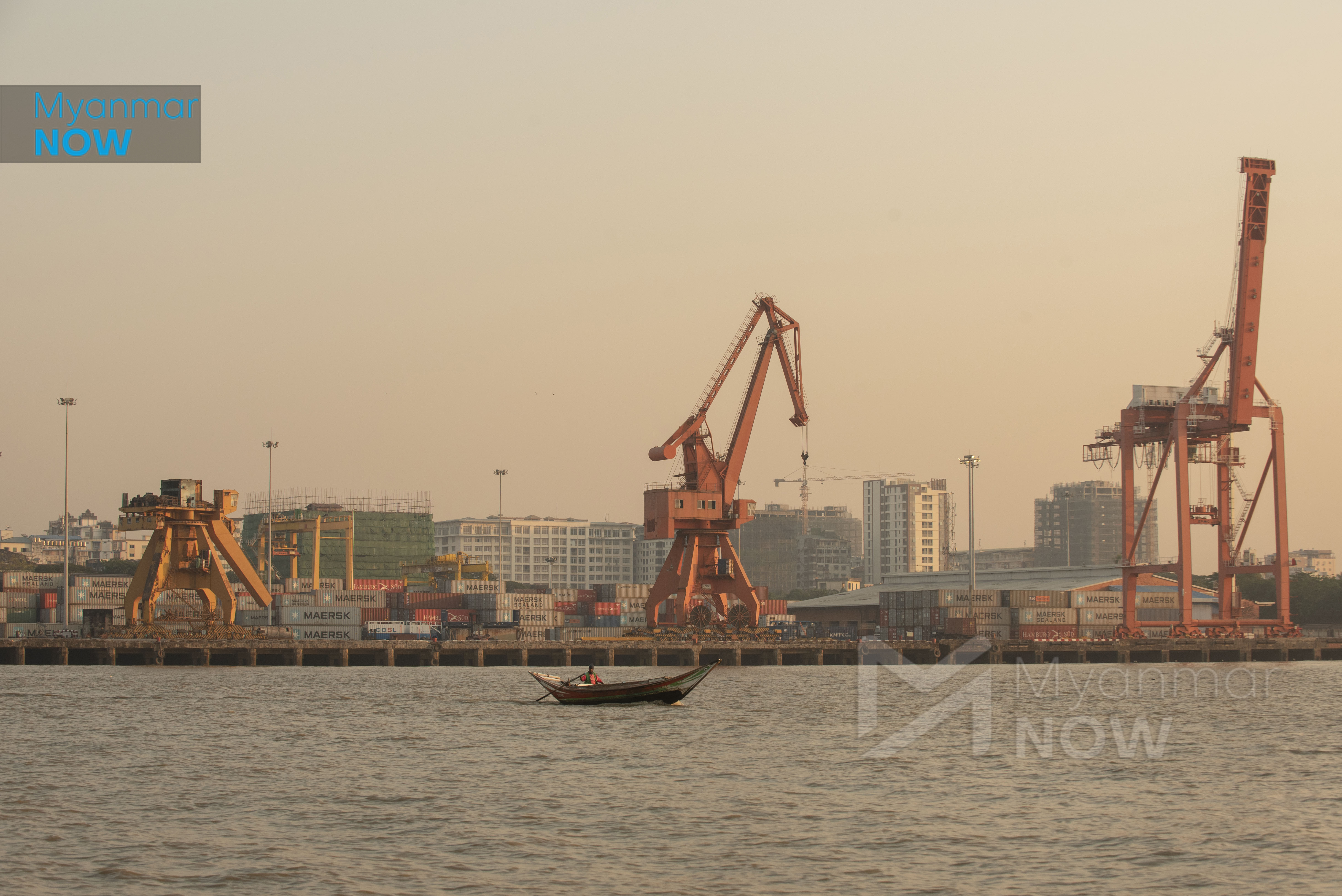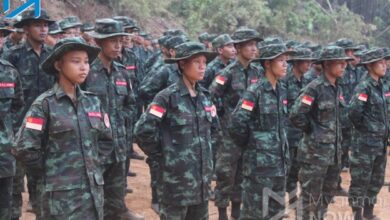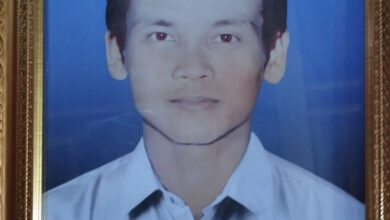
YANGON — Myanmar’s military is earning $3 million a year from a shipping port in Yangon run by a British company, Myanmar Now has learned.
Campaigners have called on the UK-based Portia Management Services to end its relationship with Myanmar’s KT Services and Logistics (KTSL), which leases the TMT Ports terminal from a military-owned company.
They are among dozens of companies under growing pressure to cut ties with the military, which is facing three separate lawsuits abroad alleging it committed genocide against the Rohingya in Rakhine state.
A panel of United Nations experts in August said any firm working with military-owned businesses in Myanmar risked helping to fund crimes against humanity.
The panel called for KTSL’s parent company and others to be criminally investigated for making donations to the military to help it with its 2017 campaign in Rakhine, which drove more than 730,000 Rohingya across the border to Bangladesh.
Responding to a request for comment from Myanmar Now, a representative from Portia Management Services said: “We are currently taking the view of the British Embassy in Yangon, something we have done throughout our time in Myanmar.” He did not provide further comment before this article was published.
Mark Farmaner, director of the Burma Campaign UK pressure group, said: “As the company managing the port on behalf of KT Services, Portia Management is critical to ensuring the port makes enough money to pay for the lease from the military.”
“This money funds the military and is helping to pay for genocide, war crimes and crimes against humanity,” he added.
TMT Ports, formerly known as the Bo Aung Kyaw Terminal, was sold in 2010 to Lann Pyi, which is owned by the military’s Myanmar Economic Holdings Limited (MEHL). But the 37.9 billion kyat sale was only completed in 2013, according to the government’s National Privatization Commission.
KTSL began leasing the 24-acre terminal in 2016. The buy-operate-transfer agreement allows them to run it for between 50 and 70 years, with the final 20 years subject to approval by the Myanmar Investment Commission.
KTSL rebranded the terminal that year to TMT Ports and signed a contract with UK-based Portia Management Services to operate the terminal for five years.
Hla Myo, general manager of MEHL’s planning department, confirmed to Myanmar Now that his company receives $3 million a year from the port. MEHL paid its taxes, he said.
The contract terms agreed with KTSL, including the lease amount, will be reviewed every five years, he said.

At least four companies offered bids when MEHL solicited them, including international ones, he added, though Myanmar Now could not verify that claim independently.
“We chose a local company because with western companies, we were worried about operational disruption if they need to leave as a result of (economic) sanctions,” he said.
A United Nations fact-finding mission in August said that KT Group was among a number of companies that should be criminally investigated for donating money to the military to assist it with its 2017 campaign in Rakhine state.
The company gave over $40,000 at donation ceremonies presided over by commander-in-chief Min Aung Hlaing.
A spokesperson for KTSL management, who spoke on condition of anonymity, told Myanmar Now the donations were made only for humanitarian and rehabilitation purposes in Rakhine state.
On 12 September, following the UN report, the company suspended all corporate donations and said it would engage with “external consultants” on a new donation policy, the spokesperson said.
The KT Group has interests in real estate, energy, aviation and pharmaceuticals, among others. The group’s real estate branch has been involved in restoring the 137-year-old Pegu Club, a teak clubhouse in Yangon’s Dagon township that once served Britain’s colonial elites.
In an interview at the club in September the company’s CEO Jonathan Myo Kyaw Thaung tried to distance his company from the military.
“MEHL is just a landlord, nothing more,” he told Myanmar Now.
KTSL had no connections to MEHL before the terminal business and he wants to avoid entering into business with a military-owned conglomerate in the future, he added.
This story has been updated to add further comment from KTSL.
![Resistance fighters holding heavy weapons ammunition in central Myanmar. (Photo: Freedom Revolution Force [FRF])](https://myanmar-now.org/en/wp-content/uploads/sites/5/2024/04/438869056_443267851680128_1706386881626943924_n-390x220.jpeg)


